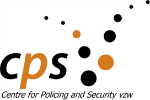Project ‘Information flows at the local police
Exploratory research into the nature of the essential information flows of the Local Police. An exploration of some crucial areas of tension.
On 12 November 2008, an exploratory study into the nature of the essential information flows of the Local Police was started. An exploration of some crucial areas of tension. The research is commissioned by the Ministry of the Interior and is carried out under the supervision of Prof. Dr. Marleen Easton and Prof. Dr. Sofie De Kimpe by researcher Gerwinde Vynckier.
On the local level, a lot of information flows are present but not always visible and/or difficult to handle for the local police organization. As a result, this information cannot be sufficiently exploited. In order to get an idea of the information flows, a literature study is followed by a field study in three corps of the local police, in which policemen from the neighbourhood and intervention service are considered as practical professionals. The research will mainly start from the experience of police officers in the field and will focus on their visions, perceptions and starting points as these are the people who are confronted with formal, informal, written and oral information flows that are guided by legal and organizational rules and regulations.
In addition to mapping these information flows, the crucial areas of tension (ratio of ‘soft’-‘hard’ information, exchange of information, internal and external information flows) are also analyzed and a search is made for both hampering and stimulating (peripheral) conditions in relation to efficiency. Attention is also paid to the communication pattern in relation to the information flows.
When carrying out this analysis, an expert (in this case Prof. Dr. Gert Vermeulen) will explicitly reflect on limitations that arise from democratic values such as the protection of privacy.
In addition to gaining insight into the bottlenecks, hampering and promoting (boundary) conditions that occur in the existing local information flows and examining how the efficiency of these information flows can be optimized (taking into account the limitations of information management such as democratic principles such as the protection of privacy), the intention is to formulate policy recommendations.
The research project runs from 12 November 2007 to 12 December 2008. A final report will be delivered with the findings and recommendations that were found and formulated on the basis of the research.
Valorization of the research:
CPS Cahier n° 10 : Administrative Police Information Flows
Editors : Gerwinde Vynckier, Marleen Easton, Sofie De Kimpe
This Cahier puts the police administrative information flows in the spotlight, in which the various facets and/or problems that the police have to deal with in the management of information are discussed at different levels (federal, district, provincial and local). In addition to the results of a recent scientific study on administrative information flows, this Cahier is complemented by contributions from professionals from various angles, such as committee P and managers within different administrative and police levels.
– Vynckier, G., Easton, M., De Kimpe, S., “Editoriaal”
– De Proft, S., “Bestuurlijke informatie bij lokale politie vanuit het oogpunt van de federale politie”
– Dhoest, L., Gunst, J-Cl., “Enkele kritische bedenkingen van arrondissementeel oogpunt”
– Boon, K., Cornelis, M., “Goed om weten of nodig om te handelen …?”
– Van den Broeck, T., Bourdoux, G., “Midden de mensen… – Bestuurlijke infostromen voor de wijk”
– Vynckier, G., Easton, M., De Kimpe, S., “Explorerend onderzoek naar bestuurlijke informatiestromen bij de Lokale Politie”
– Vynckier, G., Easton, M., De Kimpe, S., “Goede praktijken inzake de bestuurlijke informatiestromen bij de lokale politie”

